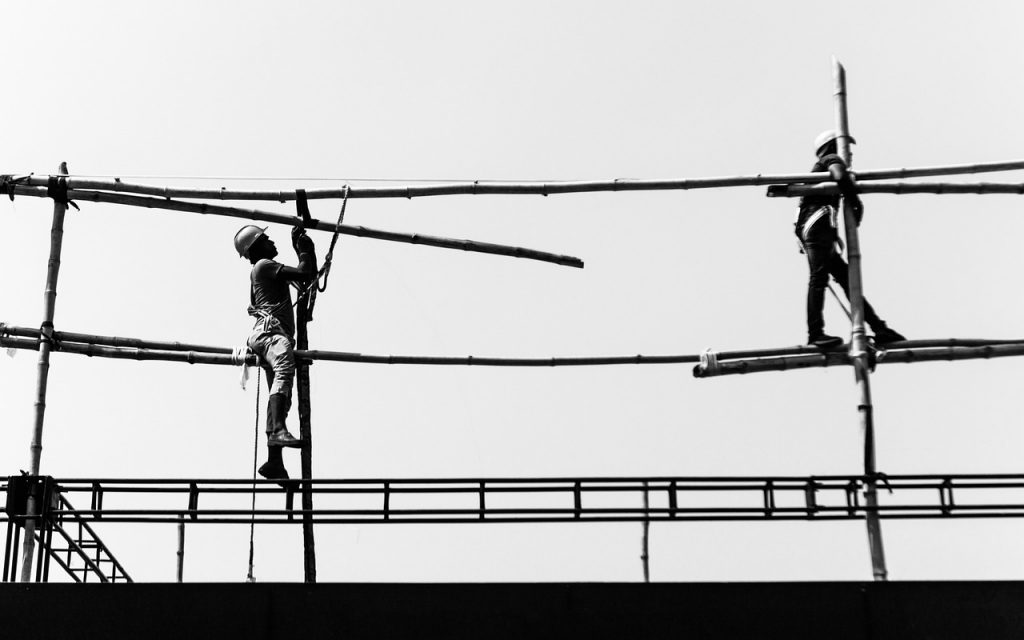Published On: 12th October, 2023
Alimony Payments
INTRODUCTION
Marriage, also called matrimony ceremony or wedlock is a legal, social, and cultural union between two individuals as spouses. It is the start of a partnership where both individuals commit to spend their entire life together. But the union sometimes does not last forever due to certain reasons. And to get separated lawfully, the procedure of divorce occurs. Divorce is the process of terminating marriage and legally dissolving marriage. Now that the individuals have parted their ways they may require financial assistance for their sustenance, since It’s not guaranteed that both spouses are financially independent therefore the concept of alimony occurs to safeguard the living of the partners or their child, if any.
WHAT IS ALIMONY?
Alimony is a legal obligation for an individual to offer financial support to their spouse and their children in the form of maintenance after divorce or separation. It is monetary compensation provided to the financially weaker party by the financially stronger party to sustain the living standards.
The modern concept of alimony is derived from the English ecclesiastical court, also called Court Christian or Court Spiritual that had jurisdiction mainly in spiritual and religious matters and had much wider power in the Middle Ages, the court didn’t permit a married couple to get divorced at that time rather they can only claim for legal separation, here husband even after separation had legal duties towards his wife. Later, divorce was recognized in different countries and the concept of alimony was mostly fault-based; that implies if the husband has committed any fault or is wrong then the wife can claim for alimony, which by the time got reformed. Nowadays all states have no-fault divorce laws which means either of the parties can claim for divorce and alimony based on their marital roles and capacity of earning of each party.
ALIMONY IN INDIA
This alimony procedure in India is governed by personal laws based on religion. Different religions have different sets of provisions guaranteeing the marriage, divorce, and maintenance process.
Alimony maintenance under different personal laws are:-
Hindu law
As per Hindu personal law both the wife and the husband are entitled to claim for maintenance from their spouses under section 25 of the Hindu Marriage Act, 1955. This maintenance is contingent upon various factors like the earnings of parties, their assets and liabilities, employment capability, living standard, child’s custody, etc.
It is also mentioned under section 24 of the Hindu Marriage Act, 1955 that if either of the spouses is not capable of paying expenses of the proceeding then the other is liable to pay on the other’s behalf. It is also possible that no alimony payment would be advanced to either of the parties as decided by the discretion of the court under reasonable grounds.
Under Hindu law, if divorce has not been processed through mutual consent and is because the husband has unjustifiably abandoned his wife, treated her with cruelty, is involved in polygamy, suffers from leprosy, has concubine, is involved in conversion or any other valid reason then, the wife has an additional option to claim maintenance under Section 18 of the Hindu Adoptions and Maintenance Act, 1956.
However, if the individuals are married under the Special Marriage Act, of 1954, only the wife has the right to claim permanent alimony.
Muslim Law
In the personal law of Muslims, according to Sharia, only wives have the right to claim maintenance even if she is financially independent.
Under the Muslim Women (Protection of Rights on Divorce) Act, 1986 women are entitled to alimony payment and maintenance paid to them within the period of Iddat by their former husband. The husband also has to pay back all properties and Mahr or dower agreed to be paid to her at the time of her marriage or at any time thereafter according to Muslim law.
Other personal laws
Christian law deals with the maintenance of the wife under Section 36, Section 37, and Section 38 of the Indian Divorce Act, of 1869. Section 36 deals with the petition for expenses and alimony pending the suit. But if in the future the husband is unable to make payments, the court may suspend the order temporarily.
In Parsi’s The maintenance of the wife is dealt with under the Parsi Marriage and Divorce Act, of 1988. Section 40, of this act deals with permanent alimony and maintenance.
If we leave aside all the personal laws then there is also the Right to Maintenance under Section 125, of the Criminal Procedure Code, 1973 which was legislated as a tool for social justice. Under this section, a follower of any religion can apply without any restriction.
WHAT IF THE HUSBANDS WANT TO CLAIM ALIMONY?
The law on alimony and maintenance varies from personal laws of different religions as they are given under those codes. Now the further question arises, whether a man can claim or be entitled to get alimony under section 25 of the Hindu Marriage Act. it is to be noted that the Hindu Marriage Act, of 1955, has given the privilege of alimony and maintenance to both the husband and wife.
However, the present society shows equality among both genders, the alimony can be granted to either the husband or the wife depending upon their financial conditions. The law sees both genders equal and their existence equal before the law; however the practicality shows inclination in the statistics as men can be seen as more liable to provide for their spouse. However, this is not an absolute right and depends upon the court’s discretion after looking over the circumstances and financial conditions of both spouses.
In the recent case in the Bombay High Court, a petition was addressed claiming for a grant of permane. the petitioner-wife was a very qualified lady and was serving as a teacher at a school. Whereas, the husband managed the household affairs to help her in obtaining the degree. However, the wife filed a petition that the respondent is unemployed and does not own any independent income with malafide intention.
In another case in a family court in Gandhinagar, it was held that a husband is entitled to claim alimony from his wife if he is incapable of maintaining himself. In this case, the husband was physically disabled due to a road accident. He filed a petition claiming maintenance from his wife wherein his wife caused him mental and physical torture. It was noticed that the court awarded him alimony of Rs 10,000 per month.
As it is common in our Indian culture, the wife is always a homemaker and popularly opinionated that they are usually in the position to seek financial assistance from their partner. Yet Hindu Law indicates; that the husband also has the right to claim maintenance if the husband is incapable due to some disease or accident, and thereby, unemployed may seek alimony from his wife. However, it is to be noticed that it is subjected to specific and detailed conditions and there are exceptions to it.
→ The exceptions and conditions are stated as follows:
Alimony cannot be awarded to a spouse who is already married to someone else and is currently receiving financial support during the divorce proceedings. However, the adjustment of alimony payments can be considered in these circumstances, based on arguments made to justify the need for such support.
In cases of a disputed divorce, spouses often struggle to grasp the concept of alimony and the appropriate amount to be paid. In such situations, the court assumes the responsibility of deciding the alimony amount to be awarded.
The court only opts to modify the previously established alimony under specific and compelling circumstances. In some instances, the court may even transfer the responsibility for providing support to a public entity.
REFERENCES:
https://en.wikipedia.org/wiki/Alimony
https://indiankanoon.org/doc/590166/
https://www.indiacode.nic.in/bitstream/123456789/2280/1/A1869-04.pdf



